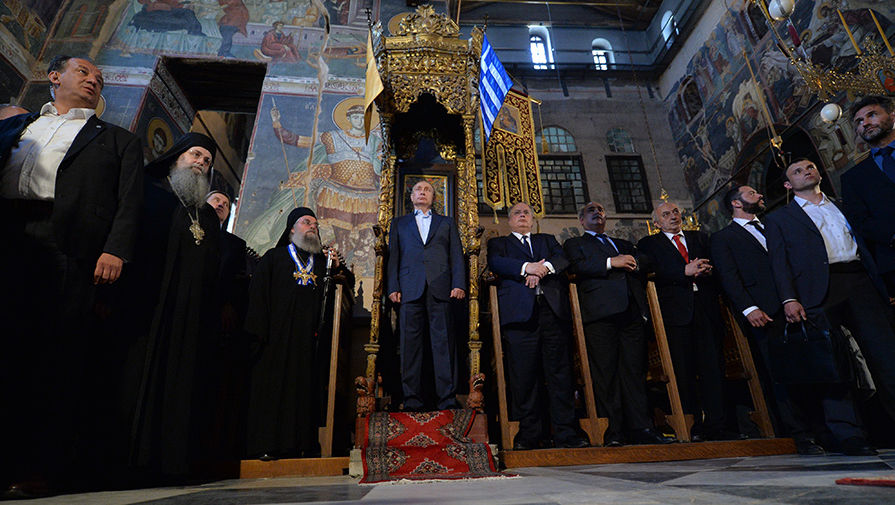The photographs of Vladimir Putin sitting on what many falsely supposed was the throne of Byzantine emperors have prompted many to laugh but others to note that “Russia even today in many ways remains an heir of the Byzantine empire,” according to the editors of Moscow’s “Gazeta.”
Russians “borrowed from this lost empire not only their main religion but also its political habits” in both foreign and domestic policy,” the paper says, noting that these include “saying one thing, thinking another and doing a third” thereby making the relationship of words and actions extremely problematic.
But it also means that whenever the authorities act, people immediately ask themselves what the action “really” means because no one can be sure that the reasons the authorities give are the real ones. And this form of doubletalk, the paper says, is rapidly becoming “the norm of our present-day life rather than an exception.”
That is because such politics are “impossible without a cult of the abstract,” as was shown by the recent exchange between Alexei Kudrin and Vladimir Putin. Kudrin, the first in several years to challenge Putin’s foreign policies of isolation, was put in his place by the Kremlin ruler because of the latter’s ideological understanding of sovereignty.
Putin told Kudrin that Russia would not be the first to work on lessening “tensions” with the West because to do so would be to call into question its “millennium of history” and represent a kind of “’trading [away] of sovereignty.’”
“Byzantium by the way also constantly appealed to its great history as the preserver of the Hellenic world,” “Gazeta” says. It existed in the end for 1058 years, a long time but “far from a record among empires.”
But the main thing about the exchange between Kudrin and Putin is the question it raises: why should political and economic cooperation with other countries necessarily “lead to ‘the selling off of sovereignty?’” In reality, no one is trying to take it away from Russia or to buy it as this exchange might suggest.
“If, however, “one understands under sovereignty only the right to do whatever one wants regardless of others, then it is extremely strange to constantly complain that ‘the West is trying to contain Russia,’” the paper says. “Even in ordinary life, if someone violates the accepted social order, people try to somehow stop him.”
Russians have held on to the Byzantine tradition even though they have passed through “at a minimum” four different states – the Moscow Principality, the Russian Empire, the USSR and “now post-Soviet Russia.” They do not appear to have reflected on what that means or on the fact that “Byzantium is not the most successful” of models.
“In the end,” the editors say, “in large measure thanks to its ‘Byzantine policy,’ it lost sovereignty” and its capital became a city in Türkiye. And that happened, they continue, because the Byzantine rulers remained too suspicious of the traders and merchants who could have built up and defended the state.
Many Byzantine survivals attract visitors – the icons, the churches, and the pompous ceremonies – but none of them offers any guarantees. When Putin sat on what he thought was the Byzantine throne, he forgot that in 2012 Viktor Yanukovych had done the same – and now Ukraine is fighting “a real war for the preservation of its sovereignty in the most literal sense.”
Related:
- Moscow, "the Third Rome," may suffer fate of the Second than the First
- Putin regime has long had an ideology -- Great Power Imperialism -- Pavlova says
- How Moscow hijacked the history of Kyivan Rus'
- New "old" Russian imperialism and hybrid wars -- a historical overview
- Third Reich syndrome
- Russians continue to suffer from Stockholm syndrome, Kirillova says
- Ukraine and Russia "share a long and common history" FAQ
- Tatar historian: 'Russians are no more European than are the Tatars'

